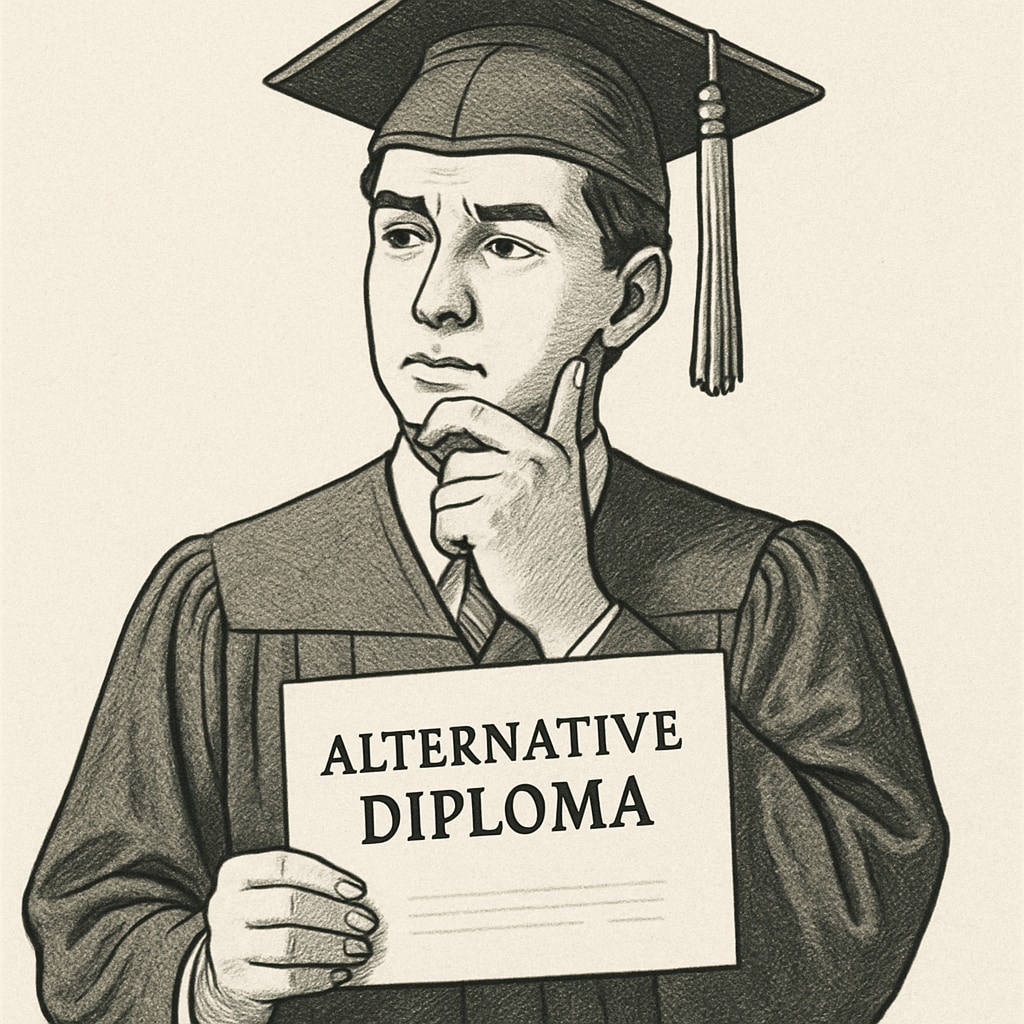For many individuals, the decision to pursue an alternative diploma, such as a correctional or modified diploma, instead of a standard one often leads to feelings of regret and self-reflection. Academic attitudes during the K-12 years play a crucial role in shaping future opportunities, and the type of diploma earned can have lasting impacts on career paths, further education, and self-esteem. However, it’s important to remember that no academic path is final. Opportunities to transition from an alternative diploma to a standard diploma—or its equivalent—are increasingly available, offering a second chance at redefining academic success.
The Long-Term Impact of Academic Attitudes
Academic attitudes during the K-12 years are often underestimated, but they significantly influence students’ futures. A lack of motivation or understanding of the importance of education can result in choosing an alternative diploma over a standard one. While alternative diplomas may provide a way to graduate, they often carry limitations. For example, many colleges and employers view them as less competitive compared to standard diplomas.
According to Britannica’s overview of education systems, the primary goal of any diploma is to certify a student’s preparedness for further education or the workforce. Unfortunately, alternative diplomas sometimes fail to meet this standard, which can lead to missed opportunities and a sense of underachievement.

Challenges Faced by Alternative Diploma Holders
Alternative diploma holders often encounter specific challenges, such as:
- Limited access to higher education: Many universities require a standard diploma or equivalent, and some do not recognize alternative diplomas at all.
- Employment barriers: Certain employers prioritize candidates with standard diplomas, viewing them as evidence of a well-rounded education.
- Social stigma: Alternative diploma holders may face judgment or assumptions about their capabilities, which can affect self-esteem.
These challenges highlight the need for pathways that allow individuals to bridge the gap between their current qualifications and their aspirations.
Transitioning from an Alternative Diploma to a Standard Diploma
For those who regret their academic decisions, there is hope. Transitioning to a standard diploma—or its equivalent—is achievable through various means:
- Adult Education Programs: Many community colleges and educational centers offer programs designed for adults to complete or upgrade their diplomas.
- GED (General Educational Development): The GED is widely recognized as an equivalent to a standard diploma and can open doors to higher education and better job opportunities.
- Online High School Programs: Accredited online schools provide flexible options for earning a standard diploma, allowing students to work at their own pace.
Additionally, seeking guidance from academic advisors or career counselors can help identify the best pathway based on individual goals and circumstances.

Redefining Success Beyond the Diploma
It’s essential to redefine success as more than the type of diploma earned. While academic achievements are important, they are only one aspect of personal and professional growth. Developing skills, gaining experience, and fostering a positive mindset can also pave the way for success. As Wikipedia’s article on lifelong learning explains, continuous education and adaptability are key to overcoming past academic regrets and achieving new heights.
By taking proactive steps and embracing a growth mindset, individuals can turn their academic regrets into opportunities for transformation. The journey from an alternative diploma to a standard diploma—or its equivalent—is not just about credentials; it’s about reclaiming confidence and pursuing a fulfilling future.
Readability guidance: Short paragraphs, clear transitions, and practical advice are used to ensure clarity. Bullet points and numbered lists summarize key ideas, while external links provide further context. Images align with the article’s themes to enhance engagement.


